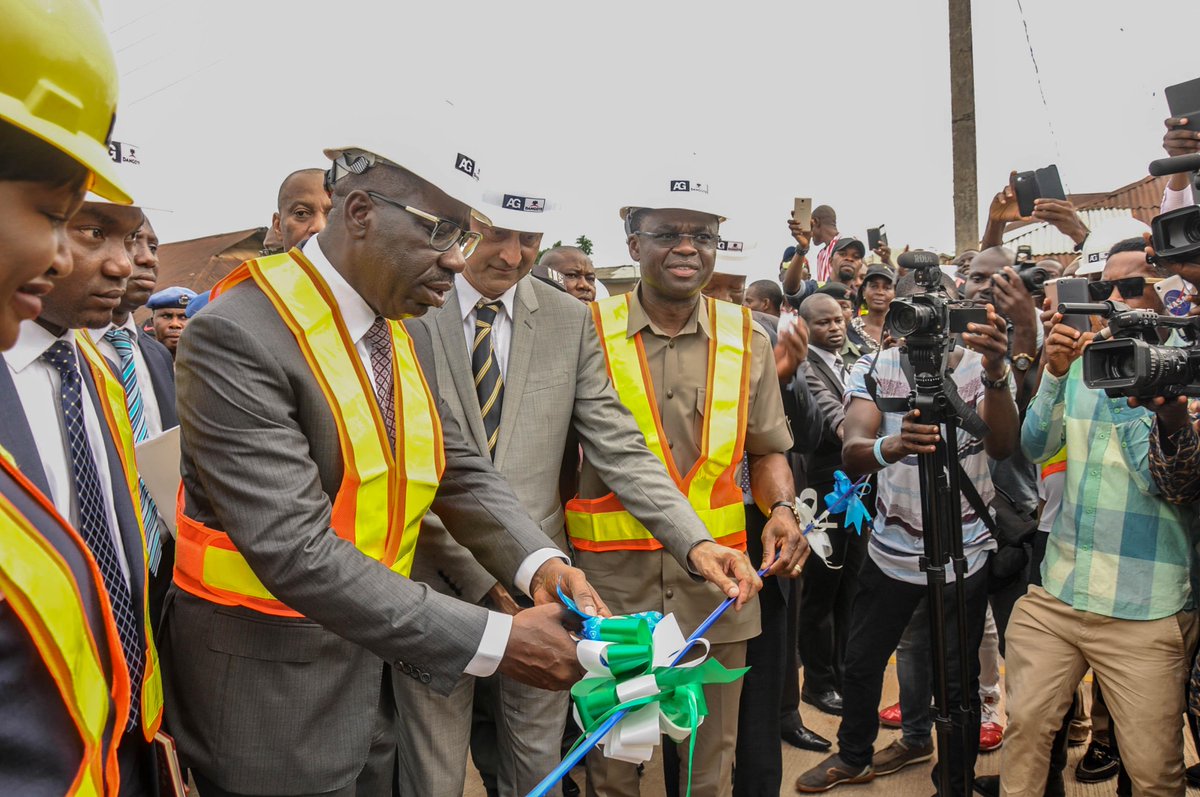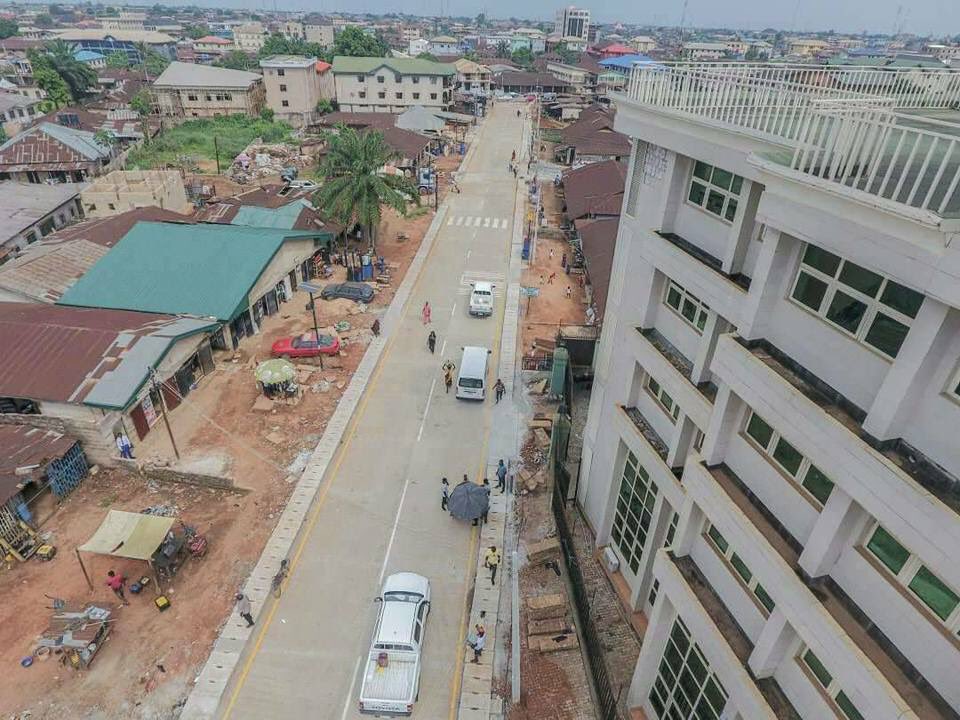
Edo State governor, Mr. Godwin Nogheghase Obaseki, leaves no one in doubt of his unfeigned understanding of the importance of roads to the socioeconomic wellbeing of the people of Edo State. If the road is unduly rough, the governor understands, the journey surely will be unpleasant, and the desire for the destination may wane.
This explains why Governor Obaseki reiterates his unambiguous commitment to the development of road infrastructure in the state. During his recent commissioning of the newly constructed 500km Nevis Street Road, which links four major roads in Benin City, the governor reaffirmed his administration’s resolve to make certain that within the four years of his first term in office he completes 3000km of roads.

The efforts of the immediate past governor of Edo State, Comrade Adams Oshiomhole in lifting the state of infrastructure in the state was widely acclaimed. But how far his successor would go in sustaining the legacy is an issue that many stakeholders in the state are now watching to see.
In his first six months in power, the new governor, Mr. Godwin Obaseki, has sought to project a testimonial that is now attracting critical acclaim that may indeed prove him to be a good student.

This was evident at the recent commissioning of the newly constructed Nevis Street Road, which links four major roads in Benin City.
At the event, Obaseki reaffirmed his administration’s resolve to ensure that within his first term in office about 3000km of roads would be completed.
One of the things that will stand out the roads to be constructed across the state under this administration is the use of concrete technology.
For example, the newly reconstructed Nevis Street Road was the first road to be reconstructed in the state using concrete materials.
Experts say that constructing roads with concrete rather than asphalt will facilitate durability.
They also maintained that rigid concrete is more durable than asphalt, adding that it has a lifespan of between 20 and 40 years.

Such roads are less likely to have potholes, they explained.
The surface of concrete is also better at preventing automobile skidding, it ensures the safety of people and in that connection helps reduce the frequent spate of accidents caused by poorly constructed roads.
Besides, concrete roads do not drain the coffers like asphalt roads when it comes to maintenance. Asphalts are money guzzlers when maintenance is considered.
It is the argument of those inclined towards the new technology within the Obaseki government that using concrete will save money that would be subsequently channeled to other sectors and programmes of the government.
With concrete pavement, it is a win-win for both government and the people. Already in many advanced societies of the world, concrete roads are more increasingly in vogue. The reason for this inheres in the great benefits it offers.
Speaking on the significance of constructing roads with concrete, Mr. Ashif Juma, the Managing Director of AG-Dangote, the company contracted to refurbish the Nevis Street Road with concrete, noted further thus: “Concrete has always made most sense in the long run. No other paving materials match concrete’s strength and durability in standing up to heavy usage and truck traffic. Concrete lasts longer without the need for resurfacing, patching or surface sealing. Concrete delivers structurally, financially and environmentally.”
He added that the road was constructed in compliance with Governor Obaseki’s directive that the materials must be sourced locally, noting that what the governor’s directive enabled his company to prove is the fact that concrete roads could be built within a short period.
 |
Today, about 45 roads that have been awarded for construction and reconstruction would be done solely with the use of concrete.
It was gathered that the roads would be constructed with raw materials sourced from within the state.
It is to this end that the governor encouraged youths in the state to take advantage of the opportunity for employment available in the Edo Jobs Initiative by registering for it.
As the governor said: “The construction of this Nevis Street within seven weeks showed that this government can make promises and fulfill them. This is a revolution in our road construction. We will design our roads, and we will train our youths on roads design and construction without waiting for foreign exchange. We have all the raw materials here.”
The Director of Construction in the state Ministry of Works, Mr. John Obanor, explained that of the total 29 roads of over 50km earmarked for rehabilitation, 15 had been completed with either flexible pavement or rigid pavement.
At Ikpokpan Road in the Government Reservation Area (GRA), Obanor said rigid pavement with concrete was used on the road to check areas susceptible to erosion.
He said lkpokpan Road, which was about 60 to 70 meters of rigid pavement, was expected to stand the test of time for a minimum of 25 years.
Other roads include Oba Eweka/Ogbetuo Oni Road, Osabuihien Close GRA, Wire Road, Nekpenekpen, Nevis Road, Ugbor, Oni Street, and Jemide/Akhiobare.
Explaining the technique behind the constructions, Obanor said: “We have done quite well as regards reconstruction and rehabilitation of the roads. In fact, we are sure of completing all these roads before the rains set in proper.
“As you may have noticed, we adopted quite a number of measures to ensure these roads last longer. These measures are the combination of rigid pavement and flexible pavement. For areas that are prone to environmental condition, we used rigid pavement while we used flexible pavement for the areas that are not prone to erosion.”
Strategically expected. Obaseki is Dangote's guy. Dangote is working towards making concrete roads popular. Of course, that will greatly catapult sales volume for Dangote cement
No comments:
Post a Comment